I was so excited to hear Michael Bush speak today. I got up at 06:30 am to drive up to West Palm Beach to hear him, but it was so worth it. The icing on the cake was that Sam Comfort was also there so I got to see him and discuss my hives and how my beekeeping skills have grown over the last couple of years. Here are a few highlights from Michael Bush’s lecture. He made 4 very important points. If more beekeepers practiced these rules our bees would be much healthier, despite the fact that our environment is causing issues with pesticides, and GMO crops, and neonicotinoids.
No Treatments
- Maintain a rich ecosystem in the hive
- Treatments within the hive disrupt this ecosystem.
- Put selective pressure only where it belongs.
- Treating only weakens the hive and therefore breeds disease.
- The pests survive and win.
- Keep the comb clean of chemicals.
- Chemicals interfere with the natural communication within the hive.
Breeding Local Survivors
- Locally adapted bees, feral bees, are more adapted to the climate.
- Breed from Queens that have shown longevity, and good supercedure skills.
- Contribute to overall genetic diversity of honey bees in North America.
- Breed for gentleness, survivability, productivity, and cull for aggressiveness.
Natural Food
- Sugar syrup has a higher ph, 6.0. Honey 3.2 to 4.5 disease reproduces better at a ph 6.0
- Improper diet makes one susceptible to disease.
- Increase ph of 6.0 affects the other 8,000 microorganisms within the hive
- Sugar syrup disrupts the Ecological Balance of the hive
- Leave honey for food, the bees will be healthier
- More balanced ecosystem in the hive
Natural Comb
- Using natural cell size fights against varroa and other disease.
- Standard foundation has been upsized.
- Upsizing has caused a bee that is 150% of its natural size.
- Upsizing the bee makes it more susceptible to varroa, and other pests.
- Clean wax promotes a healthier bee.
- Natural comb is really the way to get clean wax.
I am proud to say that I practice most of what Michael Bush promoted in his lecture. I got my bees from Sam Comfort. These bees were bred specifically for their genetics, and survivability. They are good feral bees. Although my hives carry some of the same genetics from the original hives, they have since produced new queens altering somewhat the genetics. As you know from my blog entries this has become a slight issue for me because I do think that my new queens are breeding with local drones that may carry some Africanized genetics. Michael stressed the importance of breeding for gentleness. I may have to consider re-queening my hives. I tried that in the past with a nice Italian queen, thinking that the genetic from the Italian queen would make the hive gentler. He actually talked about the fact that this is not the best idea, that the bees from the combination could actually be more aggressive. I did not find that to be true in my case because the queen I received never was a great laying queen. The hive struggled and then finally didn’t survive. I have been thinking about my hives since his lecture and I may have to consider re-queening, maybe with some queens from Sam Comfort.
Since I keep Top Bar Hives many of his other points I practice on a daily basis. I never feed my bee’s sugar water. I do not really need to because living in South Florida, there is always a pollen and nectar source for the bees. If I did need to feed I would make sure my bees had enough honey stores to survive. One of the reasons I chose TBH beekeeping was that the bees actually draw out their own comb. I allow my bees to do what they should do naturally. They are small celled bees, not upsized. They are less susceptible to varroa and other pests. I do have some small hive beetles but because my hives are strong they are in control. My comb is clean. I use no chemicals in my yard or in my hives. When I harvest my honey I actually cut the comb from the Top Bars, therefore the honeycomb is always turned over and the bees are constantly making new comb. My honeycomb is clean without chemicals.
I wish more beekeepers understood these principles. I am glad that I practice them, and I hope my bees appreciate my efforts. Now if we could just change what is going on with the use of GMO crops, and, neonicotinoids, our bees might have a chance….. but that is a whole other story.
Here are some pictures from my experience with Michael Bush! It was a great beekeeping day.
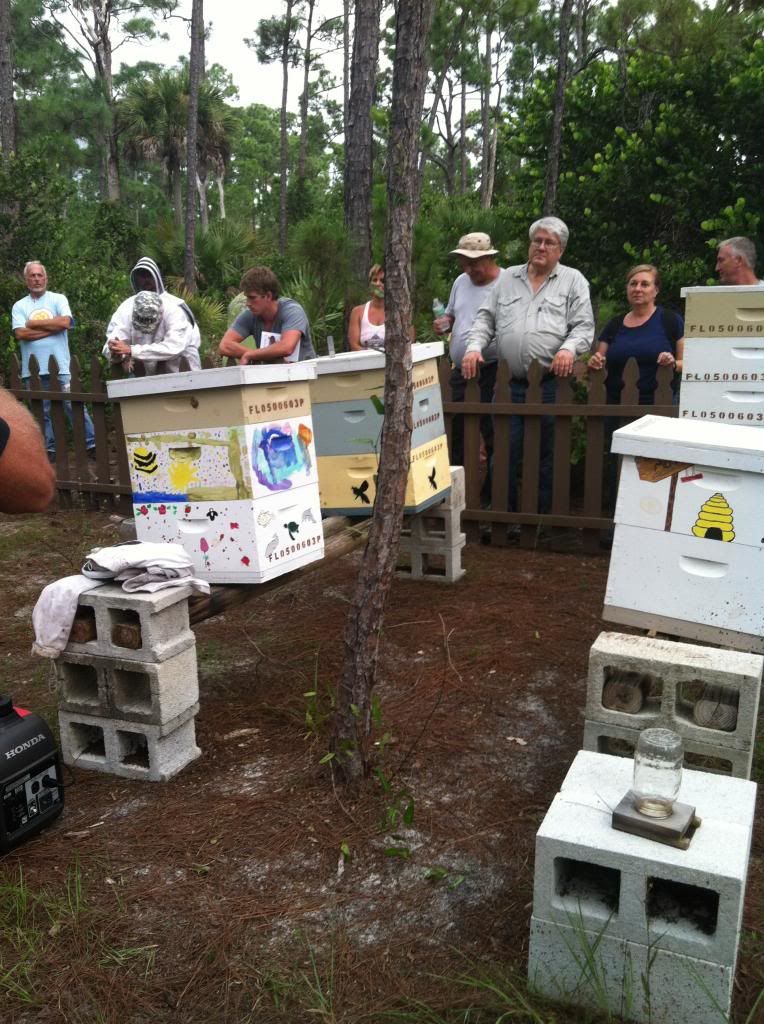 | 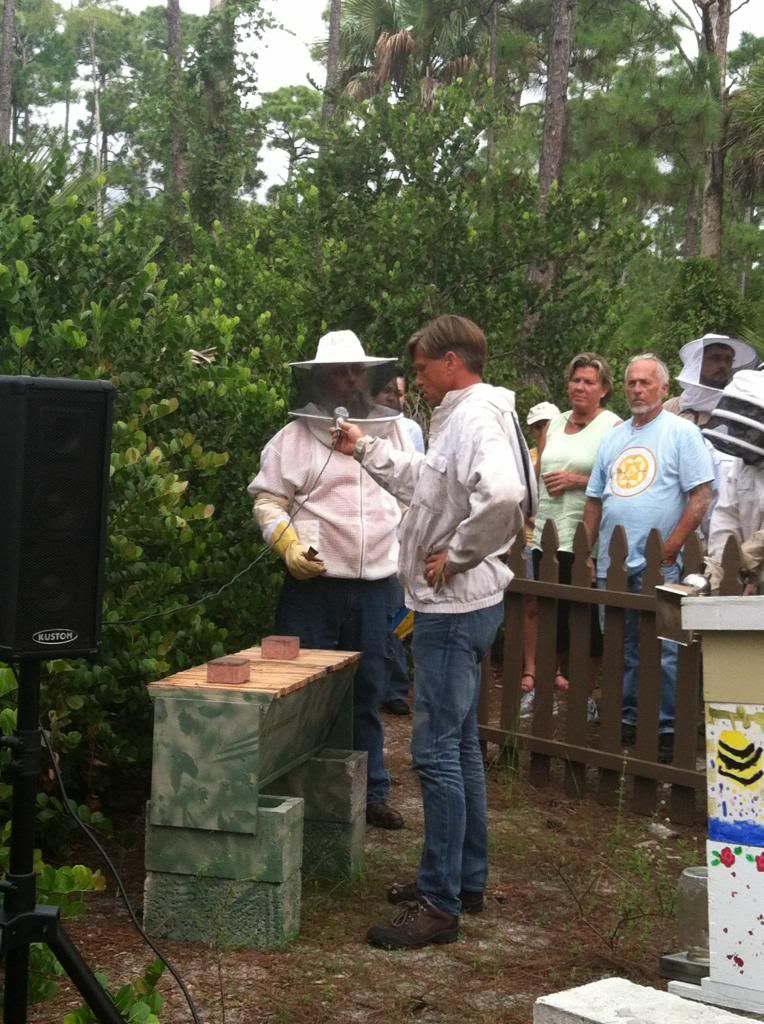 |
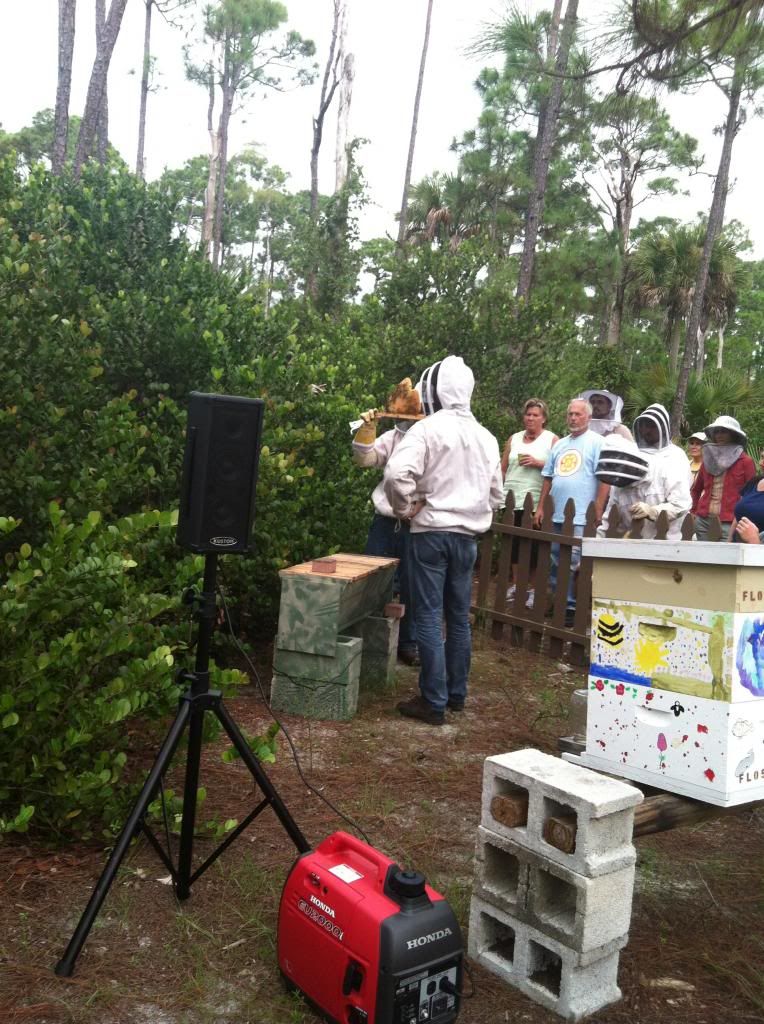 | 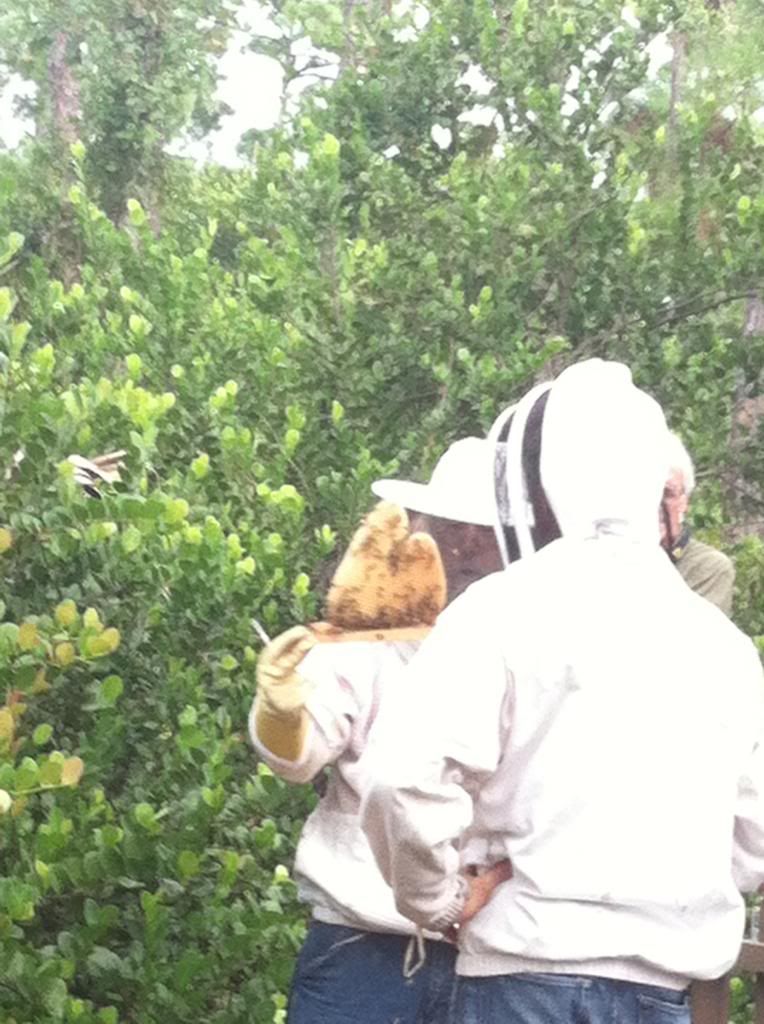 |
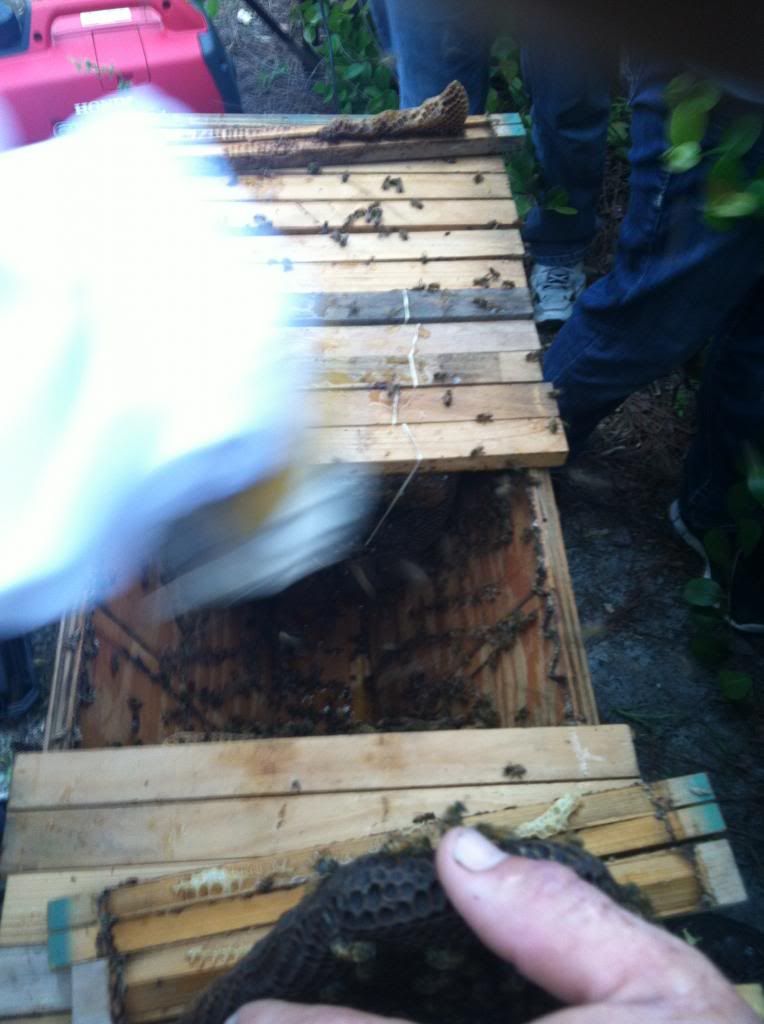 | 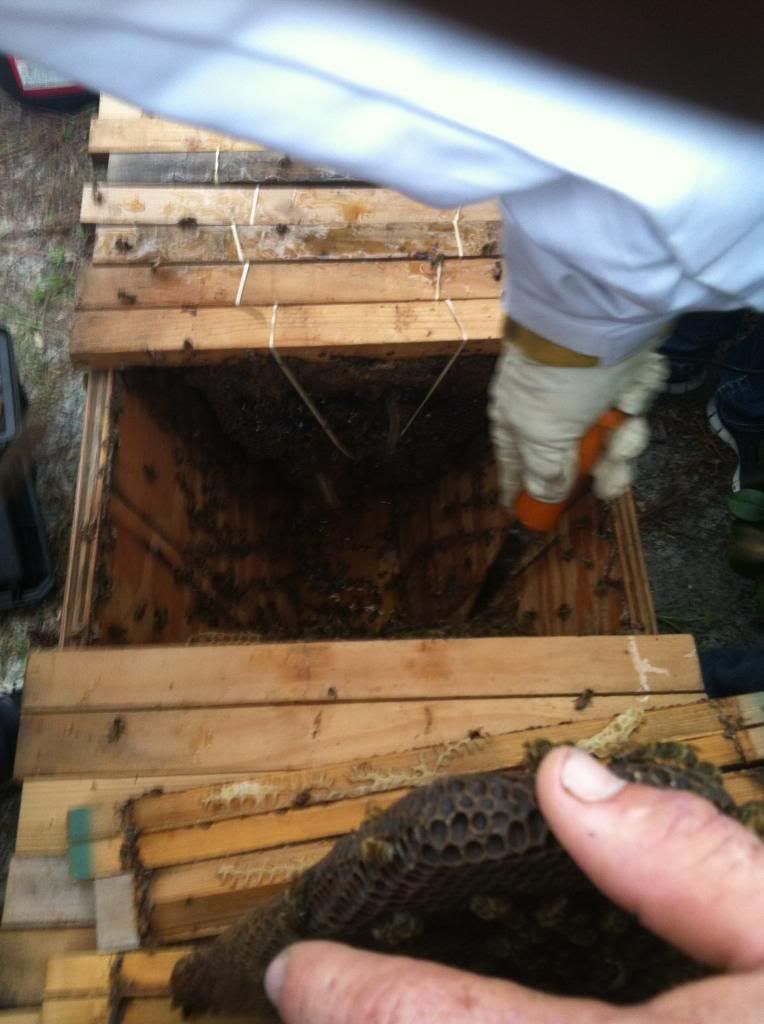 |
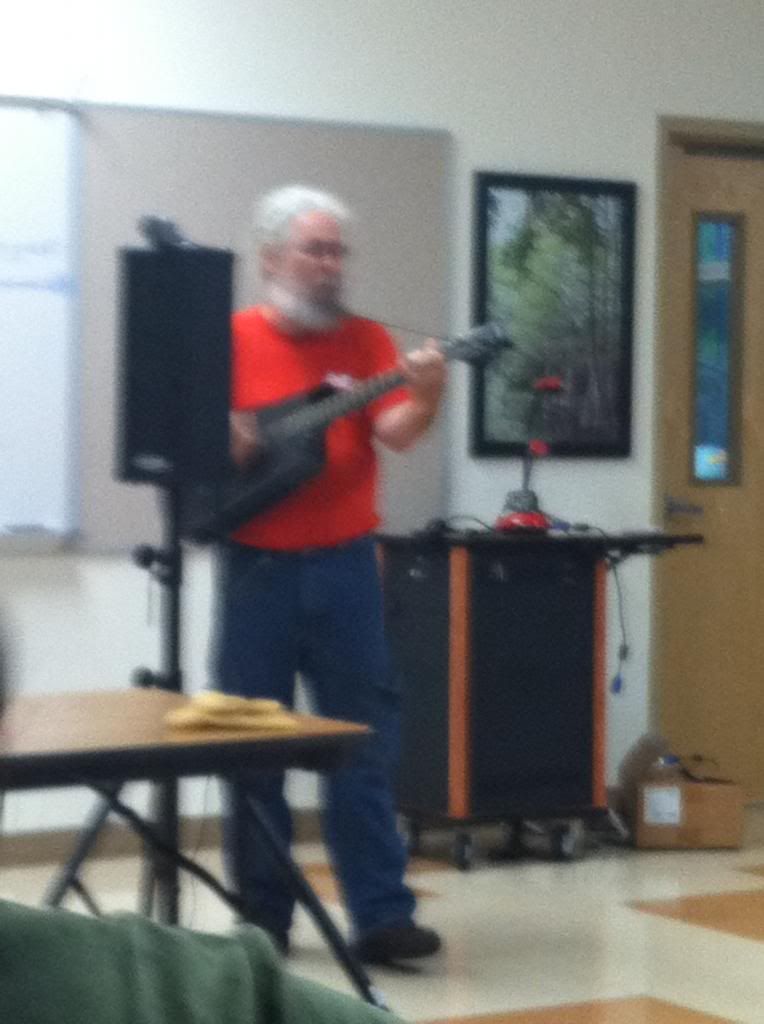 | 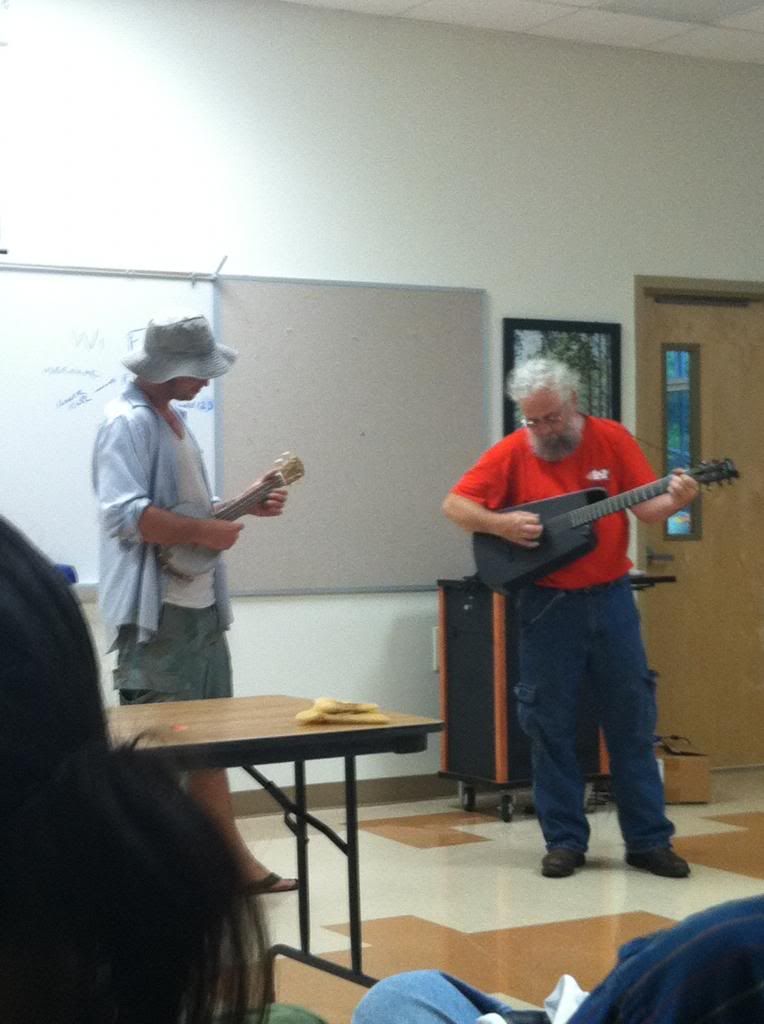 |
 |  |

No comments:
Post a Comment